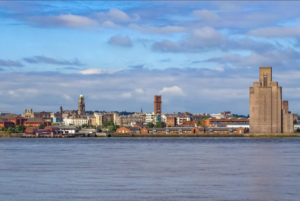It is easy enough to say this or that needs to change. There is always something wrong, something stopping things happening. I sat at a conversation last week about towns. The subject of change came up.
For some, the argument is simple: towns are failing because we are not providing the right product. It is a problem of supply. The spaces are wrong, there isn’t enough parking, historic patterns of row shops are unsuitable for modern retail. Unless this is changed, decline will continue. Someone needs to do something. We need to give shovel ready schemes all the support they need, from compulsory purchase orders to easy planning. The supply of space needs to be re-profiled. By who?
Others felt that the issue is about legislation. It is a problem of context. There is too much legislation, and too much red tape, and too much mindless measurement of process performance. In here there are ambiguous relationships with the role of the state; the state needs to do more and do less. What is the state role? What if people don’t care?
Who needs to re-profile towns?
If we started from the perspective of citizens and their transactions, monetary and otherwise, what would change look like? How do people want to live their lives in places? What if towns were places where citizens really felt like they had a role to play in shaping change? What services would people need to live this life? How would this shape thinking about the assets needed to house these services? How would all these things join up as an ecology of relationships, a mixed economy of life transactions? Who would own this story? Who would accept liability for achieving impacts?
At the event, Maggie Broadley spoke about her village, West Kilbride, where a new culture of making has been created. The story was outstanding, the impacts amazing. It was a story of social enabling, confidence building, entrepreneurship, co-production and pragmatism. Maggie as a change-maker had outstanding commitment. She had the support of her community. She was agile in the landscape of funding and finance.
There are vulnerabilities. Maybe there is too much personal commitment; maybe there are unrealistic expectations on an individual by the many; maybe there are succession challenges; maybe there are precarious financial futures. Maybe. What was absolutely in no doubt was ownership; this person and her community owned the problem of why to change, and they owned the story of how to change. There is not a place where there is abstract talk is of ‘someone needs to do something’. In this place, it is the talk of what do we need to do to make impact. It’s about relationships.
I have always believed that it takes courage to change. Some days, I see the need for change and I fail in mobilising my courage to act. This is a failing of responsibility. It is also an issue of fear. Overcoming the fear to act is about confidence building. Part of this is about building a story for change. At the core of this narrative for towns is a re-assertion of the statement of benefit. Towns are vehicles to deliver impacts. The problem is that we keep looking at them as problems, legacies of a past failed. There is a collective responsibility in re-shaping this story. I started today.

















Leave a Reply